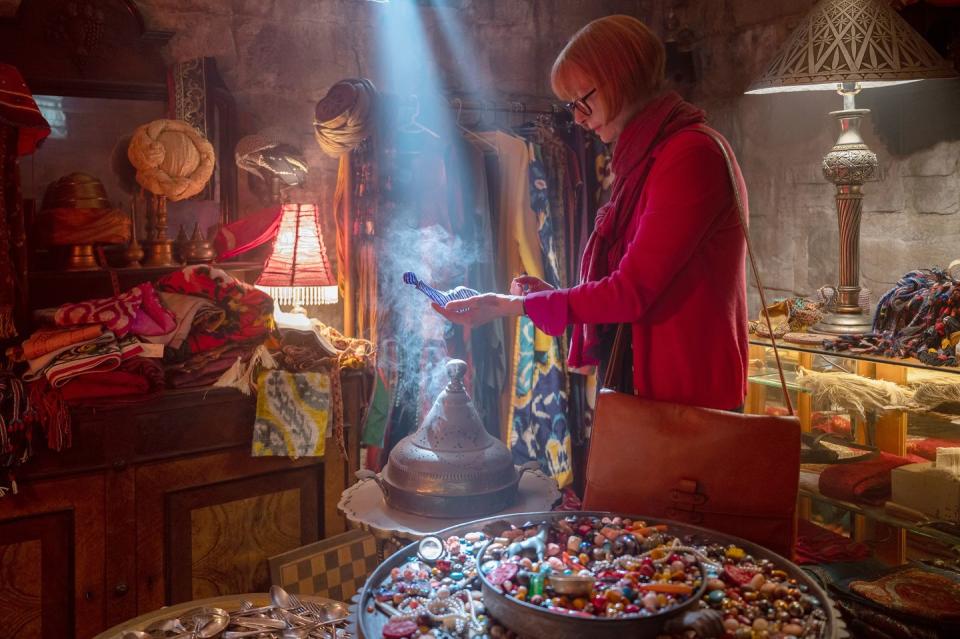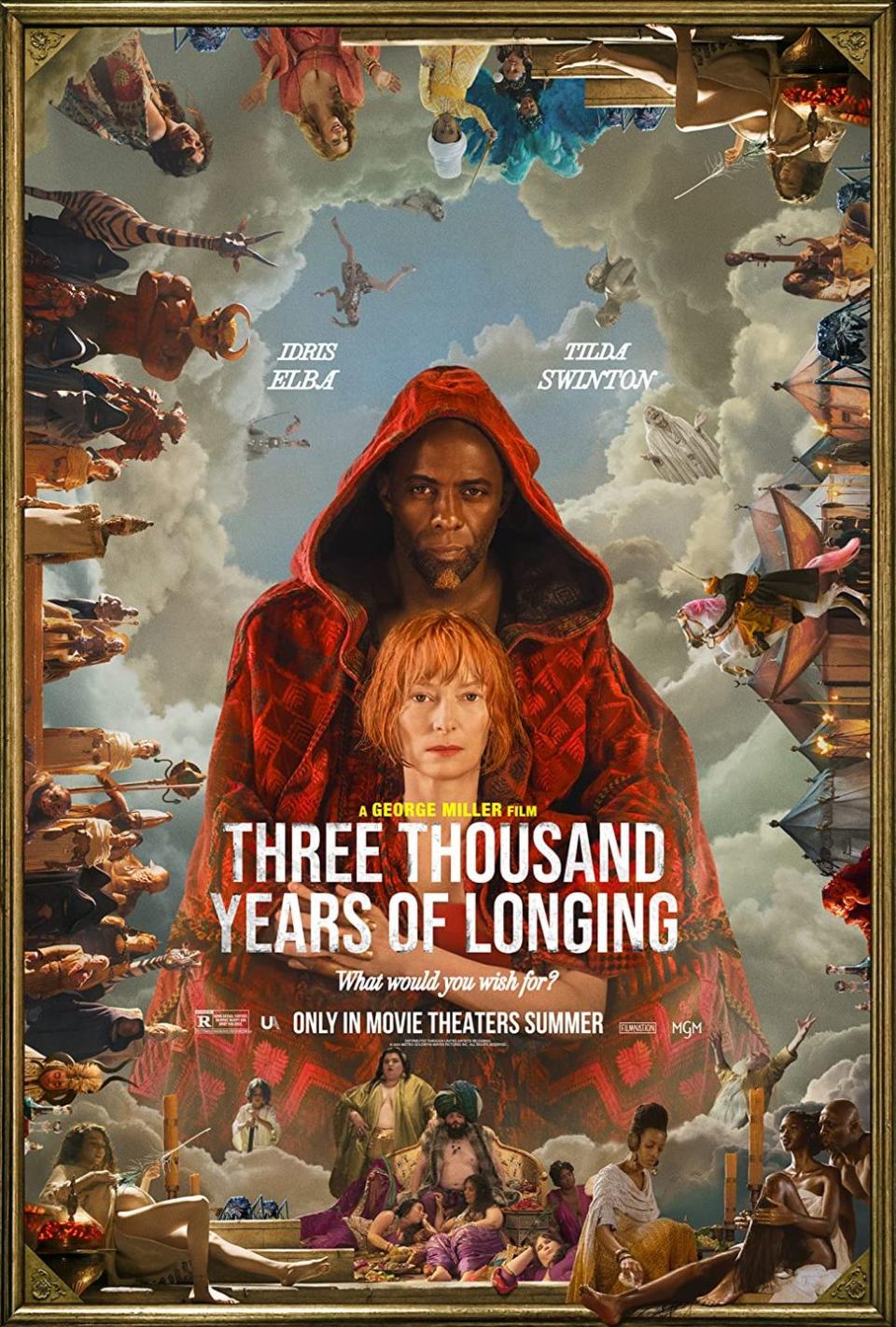Three Thousand Years of Longing's parts are better than the whole

The central question at the heart of Three Thousand Years of Longing seems to be, what is it to love? From there, of course, three thousand questions extrapolate. Some are: do we ever truly know the people we love? How many kinds of love are there? Can we even really choose to give, or rescind, love?
It's a question also posed, strangely enough, in the recent Netflix rom-com Love in the Villa by the character played by Umbrella Academy star Tom Hopper. Vampire Diaries' Kat Graham as the romantically minded Julie waxes poetical about fate and destiny, but Hopper's Charlie – ever pragmatic and, well, British, about love – decries the concept.
Once you remove choice, he says, the entire prospect of fated-by-stars romance loses its magic. But to choose just one woman over four billion, that is true romance.

It's a brief moment of depth in the otherwise blandly saccharine film, but it manages to encapsulate what George Miller's pensive foray through the world of literary magic also seeks to ask: how much of love is within our power to give?
To put this question to the test, Tilda Swinton's Narratologist literary scholar named Alithea manages to find — out of many rooms in one out of many shops in the heaving bazaar in Istanbul — a bottle in which a Djinn (played by Idris Elba) has been languishing. The two spend their tête-à-tête sussing each other out, each trying to get what they want.
Alithea wants to not be doomed by the wishes she feels compelled to make (lest she condemns Djinn to another three thousand years of not sleeping in a bottle), and Djinn wants his freedom. In this meta way, Miller explores the nature of storytelling as a means of self-definition — I tell stories, therefore I am.

Because the stories are told in flashbacks, we are jolted from the sparkling white and crisp linens of the hotel in which Alithea and Djinn are talking into the rich, heavy-air-laden yesteryears in which Djinn courted three women (one of whom is the Queen of Sheba) and how he wound up in the blue and white bottle that fate (or coincidence, the film never quite decides) deemed Alithea now to possess.
These stories in themselves are compelling enough to hold your attention despite the bumpy gear shift between past and present. This is a credit to Elba's narration (though the accent work is dodgy at best), and it is nice to see him flex some of his lesser-used but well toned acting muscles. It's hard, however, not to view this movie – as much as Miller might hope – through a contemporary lens.
What we see, separate perhaps from the richness of the narrative, is a 'magical negro' stereotype, further viewed through the contemporary sociopolitical lens of what it means to be an angry Black man. After all, Djinn has magic powers and at one point grows huge and menacing over the lithe, white woman.

It would be disingenuous to say that this is all there is to the film, or that this perhaps unintentional racial dynamic ruined our viewing experience, but once you see it it's impossible to unsee and therefore it casts a long shadow of discomfort.
There are other issues, too, particularly around fat fetishizing presented in a way that we think (giving Miller the benefit of the doubt) is meant to be firmly anti-fatphobic in sentiment but somehow swings the pendulum too far in the other direction.
Likewise, Alithea presents herself as a Strong Independent Woman And She Don't Need No Man! Except of course, that she does. Not only does she need a man — or, rather, a love — but she had one, and she had a child who, we are meant to presume, ended in a miscarriage that ruined her relationship and left her alone and – hello! – longing.
While there is no doubt that the entire journey of childbirth – miscarriages, abortions, even healthy births – profoundly alter a person's life, women are often tethered to these moments as are their entire character arcs (and in real life, worth and bodily autonomy).
The film seems to say that her miscarriage was the final nail in the coffin of Alithea's attempts to find intimacy in others.

This, again, is fine, but we get little else of Alithea to round her out (so her third act decision seems to come out of nowhere) because she is more the passive recipient of Djinn's stories than she is an active participant in her own.
She has far less narration to give of her own life, though some clues are dropped about her lineage and the power of her imagination and intellect, they never come together to create a cohesive portrait of a woman.
She veers just shy of being a Mary Sue if only because the film refuses to let itself be bogged down by any one lens or purpose – a benefit but also a downfall. The result of a less than clear focus or goal is a disjointedness, out of which the aforementioned more problematic themes are able to flourish like weeds in the crack of a sidewalk.
In this way, Three Thousand Years of Longing's parts are far superior to its whole. When it comes to its end, the film seems to answer its question about love by saying: to each their own, sort of. But with the depth of the question, this isn't a satisfying enough answer.
Three Thousand Years of Longing is now out in cinemas
You Might Also Like

 Yahoo Movies
Yahoo Movies 
